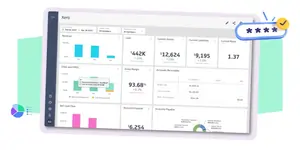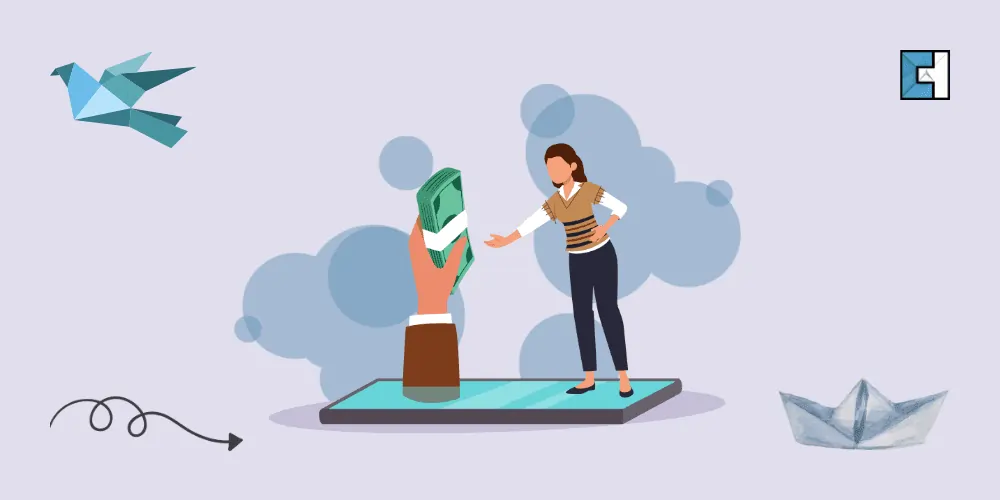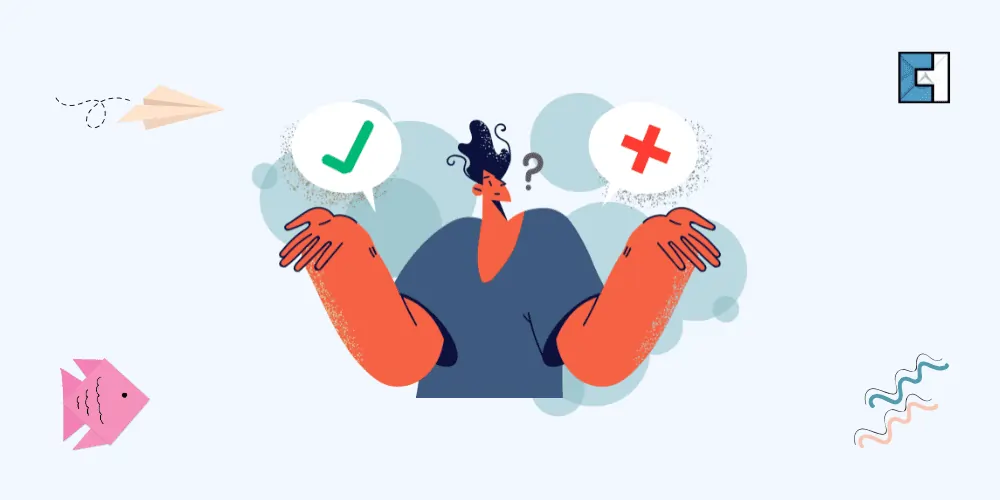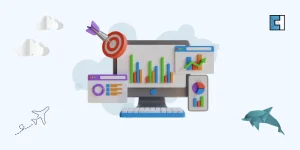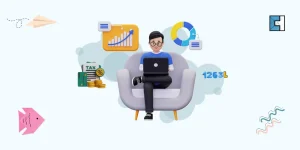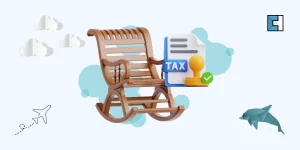Daily tasks might be more challenging for chronically sick or disabled people if they are forced to stop working or reduce their hours, which can negatively impact their income. If you have a chronic medical condition, either physical or mental, and require extra money, you may be eligible for Personal Independence Payment.
What counts is how your ailment impacts you, regardless of its cause. You may qualify if you need help with activities of daily living, including bathing, dressing, and going outdoors. Because no financial requirements are attached to claiming PIP, eligibility is not based on a person’s ability to pay. So, the only thing you might need to understand is how to claim PIP.
Anyone between the age of 16 and the State Pension age is eligible for PIP. At the State Pension age, you must apply for an Attendance Allowance if you are not receiving a Disability Living Allowance (DLA). You are not permitted to submit a new application for DLA, and you cannot simultaneously apply for both DLA and PIP.
Beyond disability benefits, understanding broader financial support mechanisms like tax-free childcare and state pension entitlements is crucial for households managing chronic conditions.
What is PIP?
PIP is a federal program that provides financial assistance to persons aged 16 to 66 who have a disability or a long-term health condition and have high medical expenses. Personal Independence Payment (PIP) is financial assistance provided to individuals who experience increased care or mobility requirements due to a disability. PIP consists of two distinct components:
- The daily living component
- The mobility component.
An individual may be eligible for either or both of these components.
PIP is not based on income and can be received whether or not the recipient works. Whether or not your child is eligible depends on their challenges in performing key activities necessary for independent living and navigating the outdoors. They may be required to meet with a medical expert in person as part of the evaluation process.
What is the PIP Benefit In Scotland?
England, Wales, or Northern Ireland residents are eligible to receive Personal Independence Payment (PIP).
Scottish residents who are disabled are eligible for Personal Independence Payment (PIP).
Social Security Scotland will transition all existing recipients of the Disability Living Allowance (DLA) or Personal Independence Payment (PIP) for individuals from the Department of Work and Pensions (DWP) in Scotland to ADP by the summer of 2024.
The severity of your impairment or health condition will decide how much PIP or ADP you are eligible to receive.
Is PIP Means Tested?
PIP is not based on a person’s ability to pay. Therefore, it is available regardless of whether or not you are actively seeking gainful employment or enrolled in an educational program.
For those who qualify for PIP, you may use the money to improve their quality of life. You may save that money for other purposes instead of medical expenses. However, PIP might be considered by your local council or trust to offset the costs of providing care.
Who Can Claim PIP? | PIP Criteria
Individuals aged 16 or older with a permanent and severe impairment that limits their capacity to carry out everyday life or travel to and from work are eligible for Personal Independence Payment.
Criteria for determining eligibility include
- Unless you have a fatal illness with fewer than 6 months to live, you have experienced difficulty with daily living or moving about (or both) for 3 months, and you anticipate these difficulties to remain for at least 9 months.
- Attendance Allowance receivers should submit a fresh claim for pension-eligible individuals for Attendance Allowance. Those currently receiving PIP at retirement age will not have their benefits reduced.
The Department of Work and Pensions has been encouraging individuals receiving DLA to switch to PIP through the mail since 2015. Afterwards, DLA will be terminated.
How To Claim PIP Successfully?
Making a PIP claim entails three steps:
- You may get help filling out the PIP1 form by calling the Department of Work and Pensions (DWP).
- Complete the “How your disability affects you” form; you may request a paper copy to be sent to you or an online form to be sent to you via email.
- Proceed to a medical examination.
After making first contact with the DWP, you may have to wait up to six months before receiving your first payment.
If the DWP determines that you are eligible for PIP, you will receive retroactive payments from the day you first filed your claim.
Contacting The DWP
Contacting the DWP by phone is preferable to sending an initial letter because of the time savings. If they determine you are eligible for PIP, they will retroactively pay you benefits beginning with the day you first contacted them.
When contacting the DWP, you’ll need to have the following details handy:
- Your Complete Name, Address, and Contact Information.
- Your Identification Number (Issued by the National Insurance System).
- Bank and building society account information.
- Information about your primary care physician and other medical providers and the dates and circumstances of any inpatient or long-term care facility visits.
- Your Immigration and Nationality Status
- If you’ve spent more than four weeks outside the country in the last three years (specific dates and information required), the call should take at most twenty minutes. Someone else may call on your behalf, but you must be there to permit them to do so.
When you contact the DWP, they will ask whether you’d like a paper copy of the “How your disability affects you” form or an electronic one sent to you.
The DWP will also inquire about your mental health, learning disability, and behavioural issues. Inquiries like these determine whether or not you need more assistance with your claim.
Filling The Form
It may be helpful for the claimant to have on hand information on their medications and the names and contact information of any specialists who provide them with ongoing care while filling out the “How your disability affects you” form.
The claimant is asked questions concerning their functional limitations in many essential areas of daily life on the “How your disability affects you” form. These will aid in determining the claimant’s eligibility for benefits and the extent to which their health condition or impairment affects their day-to-day living.
These inquiries will aid in determining whether or not claimants can answer the following:
- Securely.
- In an Acceptable Manner.
- Whenever necessary and needed.
- Acceptable speed.
The inquiries also inquire as to whether or not the claimant makes use of any assistive devices or outside assistance to do the tasks. The claimant may indicate whether they are answering “yes,” no,” or “sometimes” for each question in each section.
In the “Extra Information” box, claimants are encouraged to elaborate on the challenging or impossible tasks due to their health or disability and the needed assistance. You may inform the DWP of the specific kind and timing of assistance required in cases where this is necessary.
The claimant may get help filling out the “How your disability affects you” form from a friend, family member, care provider, or a professional if they need it.
Medical Assessment
Most persons must undergo a medical evaluation to receive Personal Independence Payment. A medical expert will examine you. Although they might be longer or shorter, appointments typically last an hour or so.
Depending on your location, Capita or Independent Assessment Services (IAS) will conduct your medical evaluation. You could have a face-to-face appointment or a telephone one.
How To Claim PIP If You Have Terminal Illness?
Unlike Social Security Disability Claims claims, the DWP handles PIP claims differently and, in most cases, more rapidly. In most cases, PIP is automatically awarded to those with a terminal disease.
PIP Eligibility For Terminal Illness:
- The minimum age to apply is sixteen.
- To be eligible, you must reside in England or Wales.
- Your physicians must state that you might pass away within 6 months, for instance, if they estimate your life expectancy to be 5 to 12 months.
How To Claim?
The Department of Work and Pensions (DWP) requires you to submit a DS1500 medical report. Only your doctor can do this for you. Nothing is required of you in terms of payment.
- Contact the PIP claim service to have your physician or consultant submit a DS1500 medical form to the DWP on your behalf.
- Ask your doctor or specialist in England to send the DS1500 directly to the DWP through email on your behalf.
- You may phone their PIP claim line to find out where to send your DS1500 to the DWP.
NOTE: You won’t have to complete the “How your disability affects you” form or undergo a health evaluation.

How Much Is PIP?
Your health and ability to do specified tasks will determine how much assistance you get from the government in the form of a Personal Independence Payment.
There are two parts to it:
Mobility Component:
Standard rate – £24.45
Enhanced rate – £64.50
You may be eligible for payment of the Mobility component if you need help moving about without assistance. That means getting out of the house and moving around.
Daily Living Component:
Standard rate – £61.85
Enhanced rate – £92.40

You may qualify for the Daily living component if you need assistance with routine tasks like bathing, dressing, eating, and preparing meals.
- Food preparation and cooking
- Taking care of yourself nutritionally and pharmacologically
- Bathing and washing
- Taking care of one’s bathroom requirements or incontinence
- Changing into or out of garments
- Talking to other folks
- The ability to read and comprehend text
- Interacting with others
- Choosing between Financial Options
- Preparing for a trip or sticking to a set path
NOTE: You can pay the base fee or an increased charge for each subcomponent.
You may qualify for either the regular or the premium rate and either one or both components, depending on the severity of your ailment.
How Does DWP Make A Decision?
If the decision maker for the DWP determines that your capacity to conduct out the component is restricted, you will be eligible for the standard rate. You’ll obtain the improved rate if it’s severely constrained.
What Are PIP Descriptors?
Your capacity to do each action is compared to a set of normative statements outlining what you can and cannot perform. They are referred to as descriptors. Which description best describes you for every activity will be recommended by the healthcare provider to the DWP.
There are six descriptors for “Dressing and undressing,” for instance, ranging from “Can dress and undress without assistance” to “Cannot dress or undress at all.
Each descriptor is assigned a point value between 0 and 12.
Can You Make a PIP Claim On Someone’s Behalf?
You may file a claim on someone else’s behalf if they require assistance, don’t know, or don’t want to know whether or not their disease is terminal. Letting the other individual realize you’ll need their information since you’re filing a claim is polite.
The DWP will not ask whether your claim falls under the specific regulations for persons with a terminal disease, and you are not required to disclose this information if you submit one.
Another option is to put in an appointment request. If the individual is mentally incompetent or seriously handicapped, you may be appointed to manage their benefits.
Can Someone Else Claim PIP for Me if I Have a Mental Illness?
If you cannot apply for Personal Independence Payment (PIP) because of illness, a representative may do so. Typically, an appointee is a close friend or family member, but it may also be a group of individuals like a housing association.
If you’d rather handle filing your claim, someone can assist you with the necessary paperwork and phone calls.
Making a PIP Claim For an Adult
If the mentally ill adult is present and gives permission, you may initiate the PIP claim procedure on their behalf over the phone.
Making a PIP Claim For a Child
If your kid has been receiving Disability Living Allowance (DLA) and has reached 16 but still lacks the mental capacity to handle their finances, you may file a PIP claim on their behalf.
- Call the DWP and tell them you want to be your child’s appointee.
- DWP will schedule a meeting with you, your kid, and a representative from DWP to See whether your kid qualifies for an appointee, do some research to be sure you’re qualified, and then fill out the BF56 application.
- DWP will confirm your appointment as your child’s nominee to receive PIP benefits after you get the BF57 confirmation letter
Financial Planning for PIP
If you receive PIP income, you should speak to an accountant. They can help you develop a strategy tailored to your PIP income. This strategy can include budgeting management, debt handling, and exploring investment opportunities suited to your unique situation.
What if You Are Already Receiving DLA?
On June 20, 2016, PIP was first made available to people in Northern Ireland. For those who were 65 or older on this day and were already receiving DLA, the government will maintain their benefits provided they continue to satisfy the requirements for this program. No PIP application is necessary.
Whether your PIP award is temporary or permanent, everyone who was 16 or older on June 20, 2016, and under the State Pension age will be required to apply. Your DLA award and benefits will expire whenever you submit a PIP claim. Your DLA payments will continue while we process your PIP claim.
Tax Considerations
PIP payments are tax-free in the UK. This means you do not need to report them as income on your self-assessment tax returns. This tax-free status can have important implications for your overall tax planning activities, but it is always advisable to speak to a professional personal tax accountant, who can advise you based on your circumstances and financial stability.

Conclusion
Stop searching; how do you claim PIP successfully? Filing a PIP claim is simple, and you can manage it smoothly after learning everything in this article. However, you must adhere to the necessary criteria to qualify for PIP funding.
You may also find answers to your questions by contacting the Department of Work and Pensions. It’s the quickest and easiest to talk over the phone, and they may even offer to fill out the paperwork for you if you give them the necessary details. Get your PIP claim in a few easy steps!
Additional Resources
FAQs
What benefits can I claim for depression and anxiety UK?
Various benefits may be available if you cannot work due to depression. Statutory sick pay and Incapacity Benefits are two examples. Moreover, you do not have to have a physical disability to get the mobility part. You might also be eligible if you have difficulty getting around because of a cognitive or mental health condition, like anxiety.
What are the scoring points for PIP?
The introductory rate of the cost of living and mobility component is 8 points, whereas the premium rate is 12. Additional points for the mobility component are required: 8 for the regular rate and 12 for the premium rate.
How do I claim PIP for anxiety?
PIP benefits are given out regardless of the recipient’s mental or physical health. It depends on the extent to which your illness needs assistance.
How hard is it to get PIP?
You must demonstrate daily activities or mobility difficulty to be approved for PIP.
How long does PIP last?
If you get PIP, you will be rewarded for a certain period. If your health is expected to improve, you have one year.

















